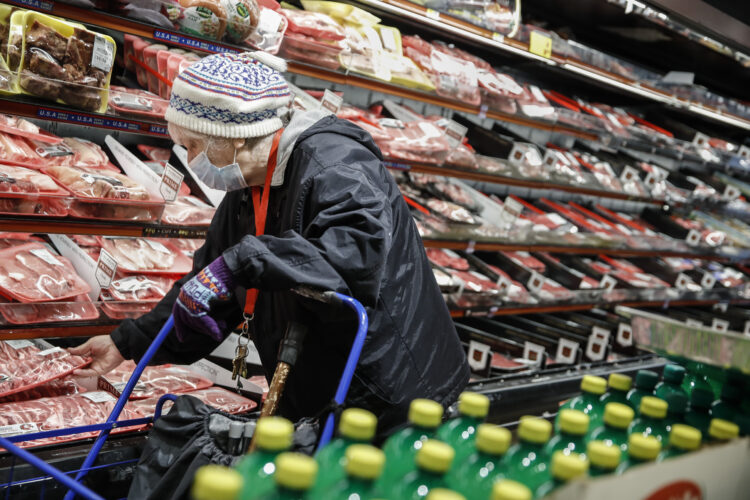The United Nations (UN) is expected to release a publication that will call on Western countries to drastically limit meat consumption later this week.
The UN Food & Agriculture Organization (FAO) will release its “Global Food Systems Road Map” during the COP28 (Climate Change Conference or Conference of the Parties of the UNFCCC) summit in December. To lower projected global temperatures to 1.5C, the road map will call on nations that “over-consume” meat to pass laws restricting their populations’ consumption.
Interestingly, it is being reported that the UN will not hold so-called developing countries, or third world nations, to the same standard. Such countries face a “prevalent nutrition challenge” due to an “under-consumption” of meat, reasons the UN, and will in fact be told by the FAO to improve their farming of livestock.
Proponents of meat restriction laws argue that roughly a third of global greenhouse gas emissions are caused by livestock farming and subsequent methane output, deforestation, and biodiversity loss.
While the FAO’s publication will not be a legally binding document, it will serve as a source for lawmakers to cite in climate legislation proposals, which have a high chance of going into effect, especially in liberal cities and states.
“Livestock is politically sensitive, but we need to deal with sensitive issues to solve the problem,” said Dhanush Dinesh, the founder of Clim-Eat, a Dutch non-governmental organization (NGO) that advocates for climate change-sensitive food systems. “If we don’t tackle the livestock problem, we are not going to solve climate change. The key problem is overconsumption.”
According to 2021 statistics from the UN FAO, North America leads in the consumption of meat with 122.8 kilograms of meat available for consumption per-capita. The average American eats about 127 kilograms of meat per year.
Learn the benefits of becoming a Valuetainment Member and subscribe today!
By comparison, the average person in Nigeria consumes about 7 kilograms per year—for Democratic Republic of Congo, about 3 kilograms per year.
The influential NGO EAT Forum, which has partnerships with Nestle and has employees from Google, the World Bank, and the government of the UAE on its advisory board, recommends that people should consume only about 15.62 kilograms of meat per year—specifically, about 98 grams of red meat and 203 grams of poultry per week.
The FAO will roll out its plan, which will include guidance for farmers to deal with “increasingly erratic weather,” in three installments over the next few years and will eventually result in recommendations for specific countries. It aims to guide livestock and food companies in the same way that the UN’s International Energy Agency tries to guide energy companies.
“This road map is needed to bring clarity to both companies and investors so that they can plan for the transition,” said Sofía Condés, head of investor outreach at FAIRR Initiative, an investor network that promotes environmentalist agriculture reform worldwide. “The longer companies wait to act, the more drastic and potentially disruptive the transition.”
“The failure of leading meat and dairy companies to reduce emissions underlines the urgent need for more policy focus on the food and agriculture sector,” said Jeremy Coller, the chair and founder of FAIRR. “Food system emissions deserve a place at the top of the table, alongside energy and transport, as they represent an estimated third of greenhouse gas emissions and 40 percent of methane.” He also said investors he speaks to are excited about the new publication set to be released at COP28.
The United Arab Emirates (UAE) COP28 Presidency has already urged governments to sign a pledge to include “food transformation” into their carbon footprint plans. The UN is set to hold its first “Food, Agriculture and Water Day” on Dec. 10 where they are expected to host a day’s worth of speeches and talks on these topics.
Watch Patrick Bet-David talk about the future possibility of global food shortages below, or read a text version of it here.




















Add comment